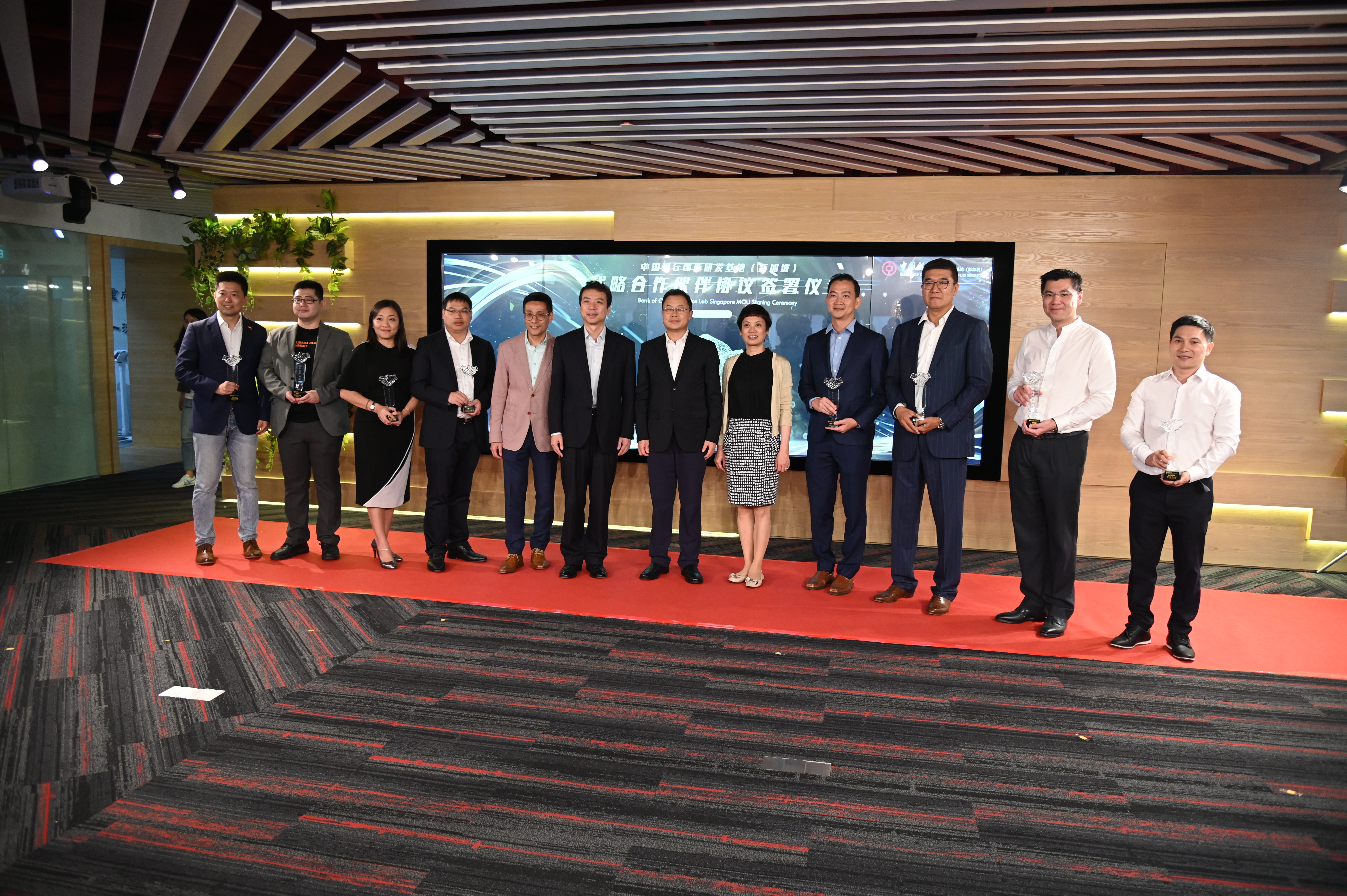With IBM Sterling and Red Hat OpenShift, clients can build intelligent, self-correcting, Watson AI- and IBM Blockchain-powered supply chains and modernize existing supply chain applications
ARMONK, N.Y., — IBM (NYSE: IBM) today introduced a new integrated supply chain suite, embedded with Watson AI and IBM Blockchain and open to developers, to help organizations make their supply chains smarter, more efficient and better able to make decisions to adjust to disruptions and opportunities in an era when globalization has made supplier networks more complex and vulnerable than ever.
The new IBM Sterling Supply Chain Suite, built on the market-leading foundation of Sterling B2B Network and Sterling Order Management, enables manufacturers, retailers and other types of businesses to integrate critical data, business networks and supply chain processes while capitalizing on the benefits of technologies like Watson AI, IBM Blockchain and the Internet of Things (IoT). These intelligent, self-correcting supply chains are designed to learn from experience, creating greater reliability, transparency and security while providing new competitive advantages.
With this launch, IBM is delivering a secured, open platform with hybrid-cloud support that enables organizations to integrate their own data and networks – and the data and networks of their suppliers and customers – with the Sterling Supply Chain Suite. This flexibility enables enterprises to update and tailor their supply-chain solutions to meet their unique business needs. The open-architecture capabilities are strengthened by IBM’s recent acquisition of Red Hat, the world’s leading provider of enterprise open-source solutions.
“Supply chains are now mission-critical systems for all businesses to drive success and profitability,” said Bob Lord, Senior Vice President, Cognitive Applications and Developer Ecosystems, IBM. “Many organizations have risen to the top of their industries by building efficient and agile supply chains. By modernizing supply chains on top of open, hybrid-cloud platforms and infusing Watson AI, IBM Blockchain and IoT into their networks, the IBM Sterling Supply Chain Suite can help companies across all industries enter a new era of global competitiveness.”
IBM sees a $50 billion market in technologies that will enable global businesses to digitally transform their supply chains. “IBM,” Lord said, “means to be number one in that market.”
Current IBM Sterling clients include leading companies in distribution, industrial manufacturing, retail, and financial services, such as Adidas, AmerisourceBergen, Fossil, Greenworks, Home Depot, Lenovo, Li & Fung, Misumi, Parker Hannifin, Scotiabank, and Whirlpool Corporation.
With retail locations across Spain and Portugal and operations in many other countries through resellers and e-commerce, El Corte Ingles, headquartered in Madrid, is the biggest department store group in Europe.
“The complex, global nature of our omni-channel operations presents a significant supply chain challenge that could be turned into a business opportunity, if the right technology is applied,” said Juan Andres Pro Dios, CIO, El Corte Ingles. “The IBM Sterling Supply Chain Suite provides open development capabilities that let us quickly tailor solutions to meet our unique business needs. This allows us to embrace operational complexity while optimizing operational performance and improving omni-channel customer experiences.”
“Publicis Sapient’s global brand is tested daily in our client engagements as we collaborate to modernize purpose-built supply chain solutions. Speed and delivery are essential to our shared success,” said Chris Davey, Chief Strategist, Publicis Sapient. “How we transform supply chain is in the ability to quickly customize solutions by empowering clients with APIs, reusable assets and connectors to incorporate third-party applications and data, while connecting to critical business networks to extend the IBM Sterling Supply Chain Suite in ways that drive competitive differentiation for our clients.”
The Importance of Open, Trusted Collaboration
IBM believes the global economy is becoming ever more reliant on the interactions of connected companies that can tap into data troves from sources like IoT, GPS positioning and continuous weather monitoring. In this data-rich environment, the potential business value of the modern supply chain has never been higher.
And yet, critical business relationships often hinge on continuous collaboration, transparency and trust to succeed. While some applications and processes must remain safely tucked inside an organization’s four walls, many others must find their way to the cloud to take full advantage of the benefits of AI-enabled open collaboration by companies, suppliers and customers.
“Optimizing individual supply chain functions and processes has helped enterprises progress as far as they can,” said Simon Ellis, Vice President, IDC. ”But the growing complexity of global supply chains continues to increase beyond the capabilities of traditional or legacy systems.”
The IBM Sterling Supply Chain Suite’s open, integrated platform easily connects to each supply chain’s unique supplier ecosystem. Innovations include:
- Trusted connectivity built to scale, backed by IBM Blockchain. The IBM Sterling Supply Chain Suite provides frictionless, secured connectivity and collaboration with customers, partners and suppliers. Enterprises can quickly leverage IBM Sterling’s existing multi-enterprise business network, a community of more than 800,000 preconnected trading partners executing 3 billion transactions a year.
- Real-time intelligence and actionable recommendations. Applications and control towers, embedded with AI and trained in supply chain, provide end-to-end visibility, real-time alerts and recommendations that can be automated for self-correcting actions to drive better business outcomes. Clients using individual Sterling applications, such as IBM Sterling Fulfillment Optimizer with Watson, in their supply chains today have lowered shipping cost per order by an average of 7 percent. IBM has also deployed these Sterling capabilities in its own global supply chain to reduce disruption mitigation time from days to hours, becoming 95 percent more efficient at tackling recurring supply chain challenges.
- Open to developers to create tailored solutions. The IBM Sterling Supply Chain Suite allows systems integrators and developers to build, extend and integrate tailored supply chain solutions that can interoperate with other business networks and applications. It also enables clients to bring in third party data, so that all connected applications and networks can benefit from it. The Suite’s Developer Hub provides a global community of developers, open-source programs and a library of knowledge resources to help quickly solve unique supply chain challenges.
- Hybrid-cloud integration to extend existing supply chain investments. Instead of requiring time-consuming and expensive migrations, the Suite’s enterprise-ready containerized software, along with IBM Cloud Paks, allows clients to extend the value and reach of their legacy applications and data. This hybrid approach means clients have the freedom to choose where to run their workloads and the ability to link them to value-added services in the IBM Sterling Supply Chain Suite. For example, once certified, IBM Sterling Order Management containers for Red Hat OpenShift will allow clients to continue to run their software in their own datacenter – or in any cloud.





